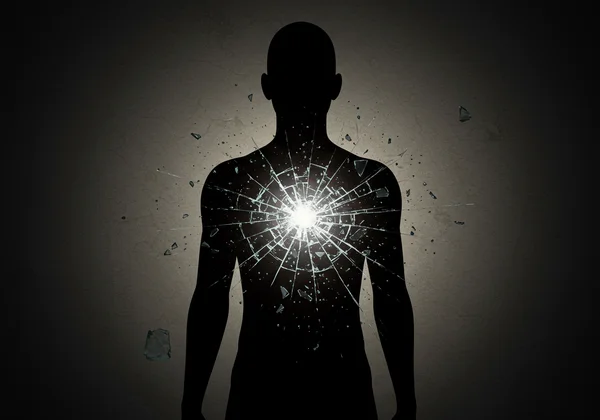Relationship PTSD Test: 10 Signs You Have Trauma from a Toxic Relationship
August 17, 2025 | By Henry Davis
The end of a relationship is often painful, but the aftermath of a toxic one can feel entirely different. It’s not just sadness; it’s a lingering, confusing pain that can permeate every aspect of your life long after you’ve left. If you feel misunderstood, as if your experience was more than just a "bad breakup," you are not alone. These intense, persistent feelings may be signs of a deeper wound known as relationship-induced trauma, or relationship PTSD. If you find yourself wondering, "do I have ptsd test?", know that seeking clarity is a sign of strength. Understanding your symptoms is the first step toward healing, and a confidential free ptsd test can provide valuable insight.
What is Trauma from aToxic Relationship?
Trauma from a toxic relationship isn't just about arguments or heartbreak. It's a profound emotional and psychological injury caused by prolonged exposure to harmful behaviors like emotional abuse, manipulation, or betrayal. This kind of experience can fundamentally alter your sense of safety, trust, and self-worth, leaving scars that are invisible but deeply felt. It reshapes how you see the world and your place in it.

It's More Than Just Bad Memories
Unlike sad memories that fade with time, traumatic events can get "stuck" in the brain's survival wiring. Your nervous system may remain on high alert, as if the threat is still present, even when you are physically safe. These aren't just bad memories; they are active, intrusive fragments of the past that can trigger intense emotional and physical reactions in the present. This is why a simple reminder—a song, a location, a phrase—can send you into a spiral of anxiety or panic.
How Emotional Abuse Can Cause PTSD Symptoms
Constant criticism, gaslighting, control, and emotional neglect are forms of severe psychological abuse. When this occurs over an extended period, it systematically erodes your identity and sense of reality. The ongoing stress and fear can lead to symptoms that closely mirror those of Post-Traumatic Stress Disorder (PTSD). Experiences like infidelity trauma or narcissistic abuse are particularly potent in creating these deep-seated wounds, making a specialized infidelity ptsd test a relevant tool for understanding.
10 Signs You May Have Relationship PTSD
Recognizing the signs of relationship trauma is the first step toward reclaiming your life. These are not signs of weakness; they are normal human responses to an abnormal situation. If many of these resonate with you, it may be helpful to explore them further.
Sign 1: Intense Emotional and Physical Reactions
You may experience sudden, overwhelming emotions like fear, anger, or sadness when reminded of the relationship. These aren't just feelings; they can manifest physically as a racing heart, shortness of breath, nausea, or trembling. These triggers can be obvious or incredibly subtle, catching you completely off guard.
Sign 2: Avoiding People, Places, or Activities
Do you go out of your way to avoid restaurants, parks, or even entire neighborhoods associated with your ex? This avoidance extends beyond physical locations. You might also find yourself shying away from dating, social gatherings, or activities you once enjoyed because they feel unsafe or too closely linked to the past trauma.
Sign 3: Intrusive Thoughts or Flashbacks
Unwanted memories, images, or feelings related to the relationship may pop into your mind without warning. In more severe cases, you might experience flashbacks, where you feel as though you are reliving a traumatic moment. These intrusive thoughts can be distressing and make it difficult to focus on the present.
Sign 4: Negative Changes in Beliefs and Feelings
The trauma may have warped your perception of yourself and the world. You might harbor persistent negative beliefs like "I am worthless," "I can't trust anyone," or "The world is a dangerous place." This negativity can lead to chronic feelings of hopelessness about the future.
Sign 5: Hypervigilance and Being Easily Startled
Are you constantly on edge, scanning your environment for potential threats? This state of hypervigilance is exhausting. You might be easily startled by loud noises or sudden movements, as your nervous system is stuck in "fight or flight" mode, always anticipating danger.

Sign 6: Difficulty with Trust and Intimacy
After being hurt by someone you were supposed to trust, rebuilding that capacity can feel impossible. You may struggle to open up to new people, question everyone's motives, or sabotage new relationships before they can get serious. This difficulty with trust is a direct consequence of the betrayal you experienced, and a relationship ptsd test can help clarify these patterns.
Sign 7: Feeling Detached or Numb
To cope with overwhelming pain, you might emotionally shut down. This can manifest as feeling numb or disconnected from your own body, your feelings, and the people around you. While it serves as a short-term defense mechanism, it can prevent you from experiencing positive emotions and connecting with others.
Sign 8: Overwhelming Feelings of Shame or Guilt
Victims of emotional abuse often blame themselves for what happened. You may be plagued by thoughts like, "I should have seen the red flags," or "If only I had done something different." These overwhelming feelings of shame or guilt are common but misplaced; the responsibility for abuse always lies with the abuser.
Sign 9: Loss of Interest in Once-Loved Activities
Hobbies and passions that once brought you joy may now feel pointless or require too much energy. This loss of interest, known as anhedonia, is a common symptom of both depression and trauma. It's a sign that your inner world has been disrupted and needs healing.
Sign 10: Difficulty Concentrating or Sleeping
Trauma can wreak havoc on your cognitive functions and sleep patterns. You may find it hard to focus, make decisions, or remember things. At night, your mind might race with anxious thoughts, or you could be haunted by nightmares, making restful difficulty sleeping feel like an unattainable luxury.

Understanding the Link to C-PTSD and Narcissistic Abuse
When trauma stems from a prolonged, inescapable situation like a toxic relationship, it can sometimes lead to a more specific condition: Complex PTSD (C-PTSD). This is particularly relevant for those who have endured patterns of manipulation, such as those found in relationships with narcissistic individuals. A cptsd narcissistic abuse test can be a starting point for those who suspect this specific type of trauma.
Why Long-Term Trauma is Different
Unlike single-event PTSD, C-PTSD results from repeated trauma over months or years. This long-term trauma doesn't just create fear; it profoundly impacts your identity, emotional regulation, and ability to form healthy relationships. The wounds are often about who you became to survive, not just what happened to you. This is why a complex ptsd test often includes questions about self-perception and relational difficulties.
Identifying Patterns of Emotional Manipulation
Recognizing the tools of abuse is empowering. Manipulative tactics like gaslighting (making you doubt your sanity), love bombing (overwhelming you with affection to gain control), and cycles of devaluation and idealization are designed to keep you trapped. Understanding these patterns helps you shift the blame from yourself to the abuser's behavior.
If you recognized yourself in these signs, please hear this: your pain is real, and it has a name. You are not "crazy," "too sensitive," or "broken." You are a survivor of a deeply damaging experience, and your reactions are valid. Healing is not about erasing the past but about integrating it into your story in a way that no longer controls your present.
This is why recognizing your symptoms is an act of strength. Take the first step toward clarity today with our free, confidential ptsd test online. It’s a safe way to understand your experiences and see the path toward healing.
FAQ Section: Common Questions About Relationship Trauma
What is the difference between PTSD and cPTSD?
PTSD (Post-Traumatic Stress Disorder) typically arises from a single traumatic event (e.g., a car accident, an assault). cPTSD (Complex PTSD) develops from prolonged, repeated trauma where escape is difficult or impossible, such as an emotionally abusive relationship. While they share symptoms like flashbacks and avoidance, cPTSD also includes deep-seated difficulties with self-concept, emotional regulation, and relationships.
Do I have PTSD or am I just traumatized by a bad breakup?
A bad breakup causes grief and sadness. Relationship trauma, or relationship PTSD, involves a specific cluster of symptoms that severely disrupt your daily functioning. Key differentiators are the intensity and persistence of fear, hypervigilance, intrusive memories, and a fundamental shift in your sense of safety and trust. A ptsd screening test can help you see if your symptoms align with clinical criteria.
How accurate are online PTSD tests for relationship trauma?
Reputable online tests, like the one offered on our site, are designed as screening tools, not diagnostic instruments. They are based on established clinical checklists (like the PCL-5) to help you identify symptoms consistent with PTSD. Their accuracy lies in their ability to provide a confidential, data-driven starting point for self-reflection and to facilitate a more informed conversation with a mental health professional. An online ptsd test is an excellent and safe first step.